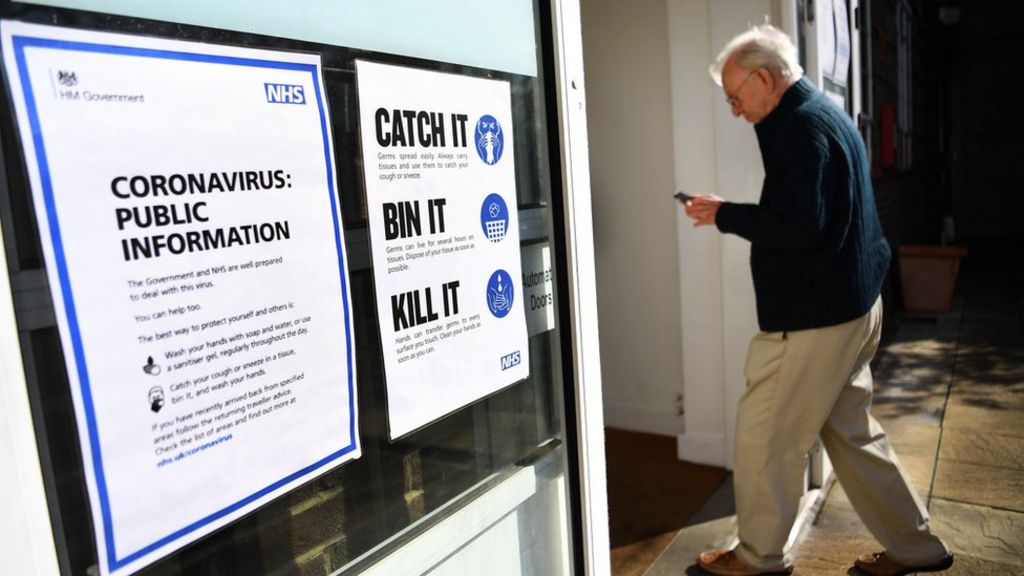The COVID-19 pandemic is the deadliest one in recent decades While the coronavirus that causes COVID-19 certainly does not discriminate, the elderly are statistically at risk due to the higher prevalence of serious underlying health issues.
Older adults tend to have more difficulty recovering from COVID-19. This is especially true if they are obese, or have compromised immune systems, both tragically commonplace situations in the elderly.
Because of this increased vulnerability, the standard precautions of wearing face masks and keeping a 6-foot distance away from others may not be enough to protect older adults.
If you are an older adult or are caring for an elderly loved one, here are 7 important COVID-19 protection tips to keep in mind:
1.) Use Hand Protection Outside
While a lot of people are justifiably concerned about getting COVID-19 by breathing in the virus, another route to infection is by touching contaminated surfaces. Reusable hand barriers such as Ghluv anti-microbial hand protectors as well as single-use latex gloves can serve to reduce the risk of COVID.
They can be especially handy in situations where you don’t have access to soap and water for proper handwashing, such as in your car, in public transportation, or when you’re out buying supplies.
Keep note that even with these hand protectors, it’s crucial to keep your hands away from your face to further reduce your odds of getting sick. Wearing a face mask can complement your hand protection by reducing the chances you will inadvertently touch your face.
2.) Stay Home!
We understand that this may be impossible or impractical for many older adults to stay home. However, reducing contact with people is the most effective way to avoid COVID-19. Never leave your home simply for the sake of leaving it.
It is impossible to guarantee which surfaces you will come in contact with that have been contaminated by others. To add to this, you can never guarantee that you will not come within close contact with an infected person, as the vast majority of COVID-19-positive people are asymptomatic or show mild symptoms.
If possible, ask family members or friends to deliver your supplies to you. If you need to get out, make sure it is only to go to the pharmacy or the supermarket.
3.) Avoid Contact with Sick People in Your Home
If a member of your household becomes sick or tests positive for COVID-19, avoid sharing supplies, and limit the use of shared areas. If possible, make sure that the sick household member stays within a designated area and to thoroughly disinfect common areas when they are done using them.
Wear the same type of protection that you would wear in public, such as anti-microbial hand protectors, masks, and face shields. Under no circumstances should you share cutlery and other similar supplies.
4.) Wash Your Hands Properly and Thoroughly
The Centers for Disease Control and Prevention (CDC) recommends proper handwashing not just as a way to control the spread of the coronavirus, but of a wide variety of other potentially dangerous pathogens as well.
Older adults tend to be more vulnerable if they get a COVID-19 infection on top of another ailment. Having to fight two illnesses simultaneously could seriously complicate their chances of recovery.
Washing your hands properly according to CDC recommendations can vastly limit an older adult’s vulnerability not just to COVID-19 itself, but other diseases that can turn an otherwise mild case of COVID-19 into a deadly matter.
5.) Take Care of Your Mental Health
The uncertainty and social isolation brought about by the COVID-19 pandemic has led to a rise in depression and anxiety. As these conditions can impair one’s immune system, this makes it especially important for older adults to take steps to mitigate them.
Keeping busy by sticking to a schedule can do a lot to mitigate the worst symptoms of anxiety and depression.
Moderate exercise, daily virtual socializing sessions with friends and family through technology, as well as abstaining from social media arguments can also be beneficial for most older adults who are currently experiencing anxiety and depression due to the COVID pandemic.
If symptoms persist, arrange a virtual online therapy session with a trusted psychiatrist or counselor, if possible.
6.) Try to Eat Healthier Meals
One growing concern in the COVID pandemic is that people in lockdown and quarantine conditions are eating less healthy than they normally would.
While it’s beneficial to allow yourself a few treats or luxuries in this stressful time, more than ever, it’s important to eat healthier, more balanced meals to boost your immune system, as well as your long-term mood during the quarantine.
Try to have a serving of fresh vegetables at every meal, and try to limit the number of empty calories you consume.
7.) Ask Your Healthcare Provider about Securing a Long-Term Supply of Medications
It’s important to have a long-term stock of any vital medication you need. This will limit the necessity of needing to leave your home to restock your medication, and this will also limit your exposure to others.
The CDC recommends considering using mail-order for medications if you are unable to secure an extra supply.
Final Thoughts
Older adults are particularly vulnerable to COVID-19, which means both they and their healthcare providers need to take extra care to ensure that they remain safe and healthy during this outbreak as well as during ones that may occur in the future.
While it may be impossible to eliminate risk, following the precautions above can serve to not only reduce an older adult’s chances of becoming infected with COVID-19, but it will also help save the lives of others in the community.
- How Primary Care Doctors Are Your First Line of Defense - December 23, 2024
- Live-In Caregiver Jobs: Providing Support, Building Bonds - December 19, 2024
- Caring for Your Porcelain Veneers: Tips for a Lasting Smile - November 12, 2024
